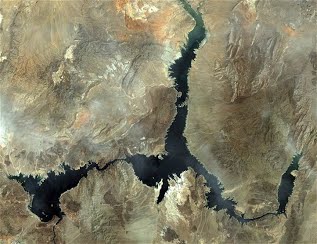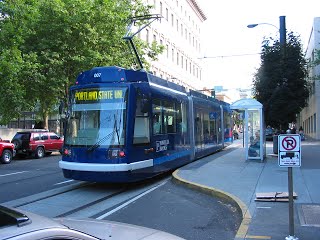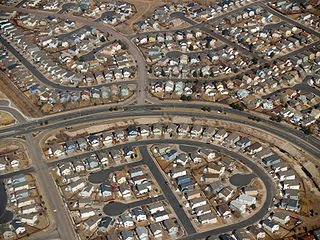Environ 350
The Built Environment
3 credits, offered every Winter semester
 Environ 350 examines human-built spaces and their relationship to the natural environment. It investigates the features and functions of particular places, the similarities and differences between built and natural environments, and the shifting meaning of those terms in environmental thought. Spaces as diverse as the American lawn, national parks, megacities, and virtual communities are all part of the conversation. Through several writing assignments, an oral presentation, a site analysis, and in-class exercises, students develop a conceptual vocabulary for understanding the built environment, and ultimately a richer understanding of the term “environment” itself. This course satisfies the Upper Level Writing Requirement.
Environ 350 examines human-built spaces and their relationship to the natural environment. It investigates the features and functions of particular places, the similarities and differences between built and natural environments, and the shifting meaning of those terms in environmental thought. Spaces as diverse as the American lawn, national parks, megacities, and virtual communities are all part of the conversation. Through several writing assignments, an oral presentation, a site analysis, and in-class exercises, students develop a conceptual vocabulary for understanding the built environment, and ultimately a richer understanding of the term “environment” itself. This course satisfies the Upper Level Writing Requirement.
Take this class if: you enjoy creative, conceptual thinking and writing about the environment.
URP 423/Arch 423/Environ 370
Introduction to Urban and Environmental Planning
3 credits, taught by me in the Fall and a different urban planning faculty member in the Winter.
 UP 423 provides an overview of urban planning as a means of understanding a variety of concerns that express themselves in the physical layout of communities. These concerns include climate change, social equity, sustainable development, public health, economic development, food security, and many more. UP 423 trains the eye of urban planning—its worldview, its ways of defining problems—on these topics, shedding light on the issues themselves and on planning as a profession. The class asks the basic question: what is urban planning good for? Students write several essays dissecting issues into their planning components using concepts, definitions, and explanations developed in class.
UP 423 provides an overview of urban planning as a means of understanding a variety of concerns that express themselves in the physical layout of communities. These concerns include climate change, social equity, sustainable development, public health, economic development, food security, and many more. UP 423 trains the eye of urban planning—its worldview, its ways of defining problems—on these topics, shedding light on the issues themselves and on planning as a profession. The class asks the basic question: what is urban planning good for? Students write several essays dissecting issues into their planning components using concepts, definitions, and explanations developed in class.
Take this class if: you have an interest in urban planning as a profession or policy arena.
URP 425
Urban Systems
3 credits, offered every Winter semester
 UP 425 focuses concretely on the physical components of human settlements—roads, water and sewer systems, parks, housing—and the application of planning tools to understand these systems. We trace the difficult challenges of the urban environment back to the nuts and bolts of what make a city function. The course pays special attention to the bridge between technical analysis and the values-based questions that technical analysis alone can’t solve. Students write a series of memos analyzing the urban systems of a particular community using GIS, legal research, quantitative analysis, and observation. UP 425 is one of the core courses for the LSA Urban and Community Studies minor.
UP 425 focuses concretely on the physical components of human settlements—roads, water and sewer systems, parks, housing—and the application of planning tools to understand these systems. We trace the difficult challenges of the urban environment back to the nuts and bolts of what make a city function. The course pays special attention to the bridge between technical analysis and the values-based questions that technical analysis alone can’t solve. Students write a series of memos analyzing the urban systems of a particular community using GIS, legal research, quantitative analysis, and observation. UP 425 is one of the core courses for the LSA Urban and Community Studies minor.
Take this class if: you want to know what makes cities work and investigate them in a hands-on way.
Environ 405
Urban Sprawl: Policy and Politics
3 credits, offered every Fall semester
 Environ 405 investigates the political forces and policy frameworks at the local, state, and national levels that drive metropolitan development in America. It leverages political science, history, law, and urban planning to understand how public policy does (and does not) guide development patterns, and how it might do so differently in the future. The course is organized as a seminar in applied policy analysis, appropriate especially for students with an interest in government, advocacy, and law. In addition to other assignments, students complete an independent research memo that is assigned reading for the rest of the class. While there are no formal prerequisites, this course assumes students have had some exposure to urban/metropolitan issues in a previous class.
Environ 405 investigates the political forces and policy frameworks at the local, state, and national levels that drive metropolitan development in America. It leverages political science, history, law, and urban planning to understand how public policy does (and does not) guide development patterns, and how it might do so differently in the future. The course is organized as a seminar in applied policy analysis, appropriate especially for students with an interest in government, advocacy, and law. In addition to other assignments, students complete an independent research memo that is assigned reading for the rest of the class. While there are no formal prerequisites, this course assumes students have had some exposure to urban/metropolitan issues in a previous class.
Take this class if: you are a policy geek or might aspire to be one.
Environ 398
Environmental Internship
3-4 credits
 Environ 398 is the course that grants credit for PitE-approved internships after completion of the Michigan Internship Learning Environment (MILE) requirements. Only when an internship has been approved by the PitE office BEFORE it begins, and only when all of the MILE stages have been completed, can students earn internship credit. PitE students participating in MILE are assigned to me or a different PitE faculty member to oversee progress through the system.
Environ 398 is the course that grants credit for PitE-approved internships after completion of the Michigan Internship Learning Environment (MILE) requirements. Only when an internship has been approved by the PitE office BEFORE it begins, and only when all of the MILE stages have been completed, can students earn internship credit. PitE students participating in MILE are assigned to me or a different PitE faculty member to oversee progress through the system.
Check out PitE’s internship information to get started.